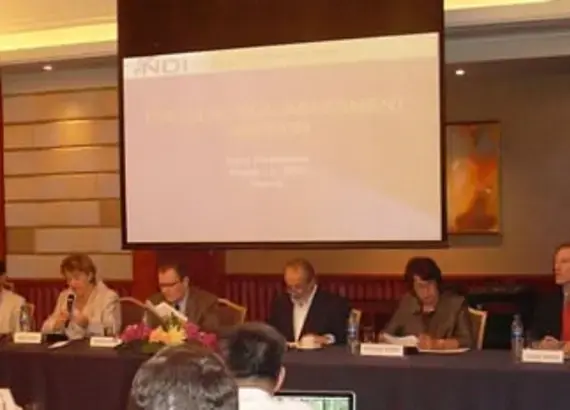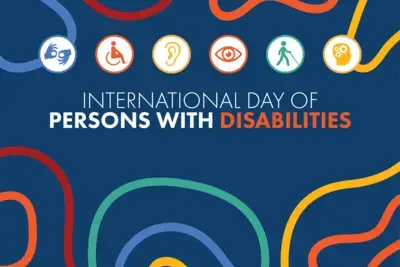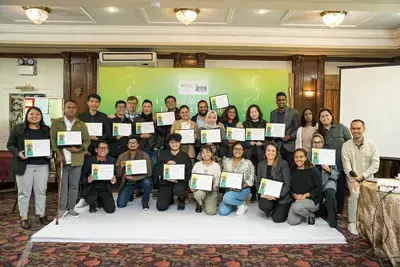
Success Story
More Work Needed to Develop Public Trust in New Philippine Automated Voting System, NDI Delegation Says
MANILA – Concerted efforts will be needed to develop public trust in the Philippines’ first automated election to be held May 10, according to the findings of an international pre-election delegation organized by NDI.
“While progress has been made in many areas, concerns remain as to the efficacy of the election preparations and the lack of dialogue between those administering the process and civil society groups committed to effectively monitoring it,” the delegation said in a statement released at a news conference here Saturday.
The delegation included Sam Gejdenson, former member of the U.S. House of Representatives; Nora Owen, former minister for justice, equality and law reform of Ireland; Sue Wood, former president of the New Zealand National Party; Jamie Metzl, executive vice president of the Asia Society; and Thomas V. Barry, NDI deputy regional director for Asia.
The group visited the Philippines from March 6-13. It reviewed the political environment and framework for the upcoming elections for president, vice president, House of Representatives, Senate, and a range of provincial, municipal, and local offices. During the visit it met with government and electoral officials, leaders of political parties, civic and human rights associations, representatives of the news media and international organizations.
The delegation noted that while automation of the national election process has been under consideration for many years in the Philippines, the May 10 balloting will be the first time machines will be used to count ballots and aggregate and transmit results nationwide.
“Suspicions and lack of trust among the political competitors and toward authorities, combined with insufficient inclusiveness and transparency, have inhibited public confidence in the elections and generated anxiety about the automated election system,” the delegation said.
“There is still time for all participants to take appropriate steps to achieve democratic elections in May, but concerted efforts are required to increase transparency, build in needed safeguards, heighten security and develop public trust in the process,” it continued.
The delegation offered a series of recommendations that it hoped would be helpful in promoting inclusive, transparent and credible elections. They included urging:
- The Commission on Elections to undertake a major effort to bolster public confidence in the automated system and the impartiality of its decisions;
- That random manual audits should be undertaken using a large enough sample of electronic voting machines to assure public confidence in the automated system at the national level;
- The armed forces of the Philippines and the Philippines National Police to do all they can to support the integrity of the electoral process and the sanctity of the ballot, as well as bolster the safety of members of the news media;
- Robust and widespread public participation in nonpartisan citizen monitoring of elections;
- The government of the Philippines to mobilize all of its resources to educate the public about balloting procedures and the new automated system; and
- The election commission to make available on the Internet and in other forms the information currently available on campaign expenditures before the election.
The work of the delegation was based on the Declaration of Principles for International Election Observation, launched at the United Nations in 2005 and endorsed by NDI and 35 other international and intergovernmental organizations.
A copy of the full statement can be found here.
Pictured Above: The NDI delegation explains its findings at a press conference in Manila.
Published on March 13, 2010



